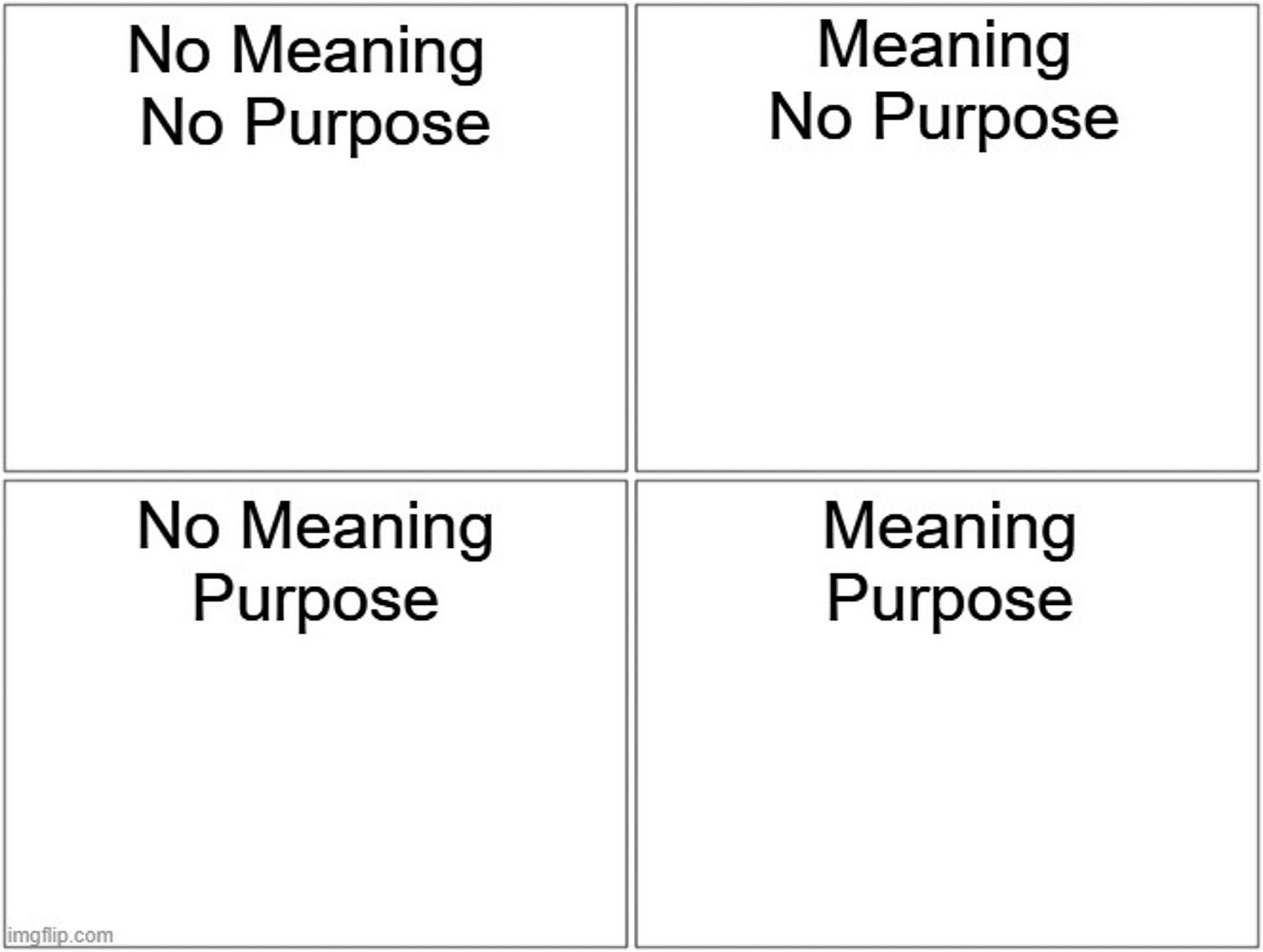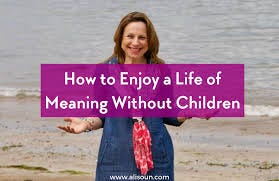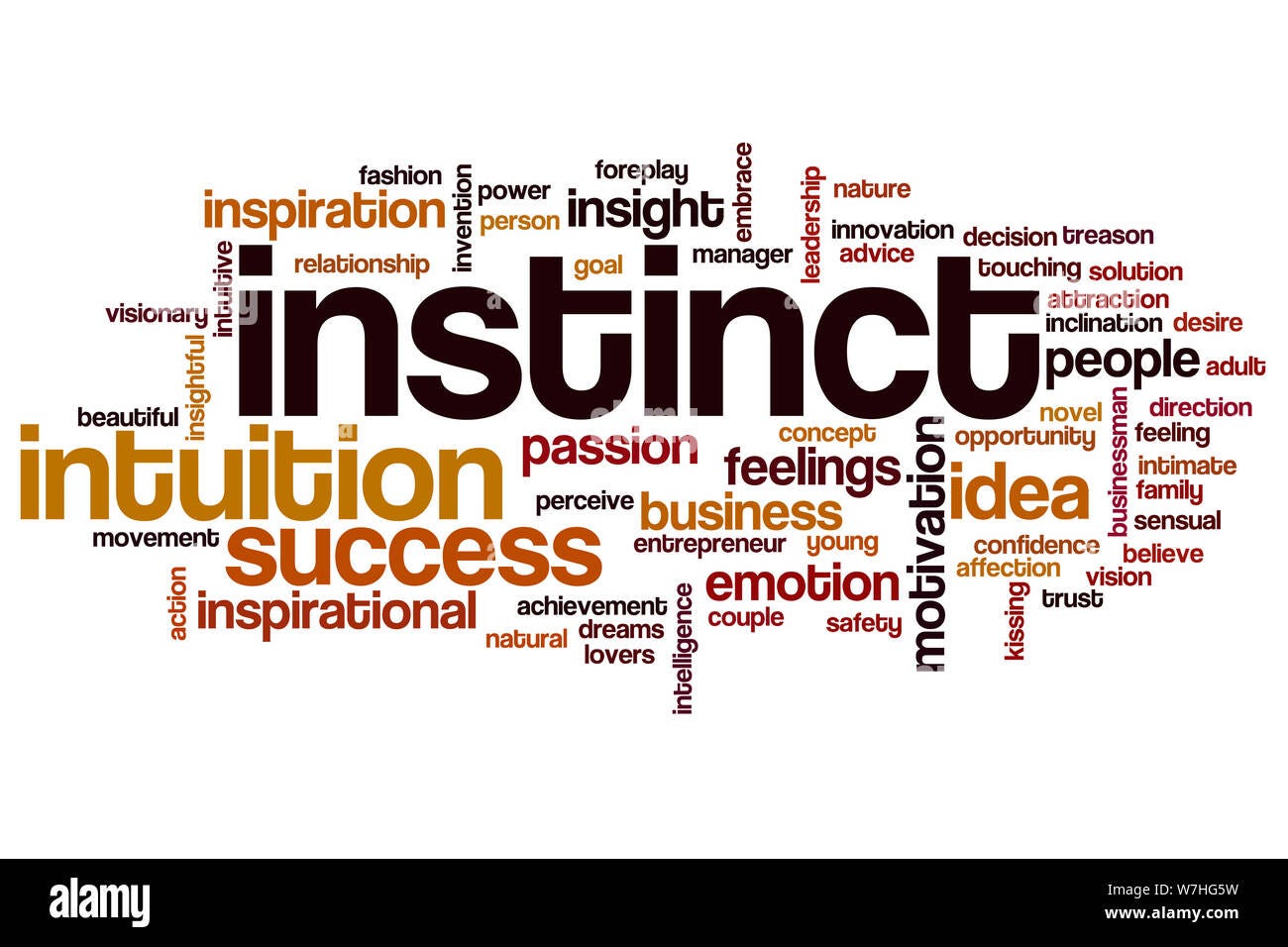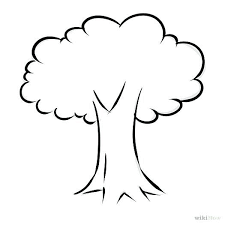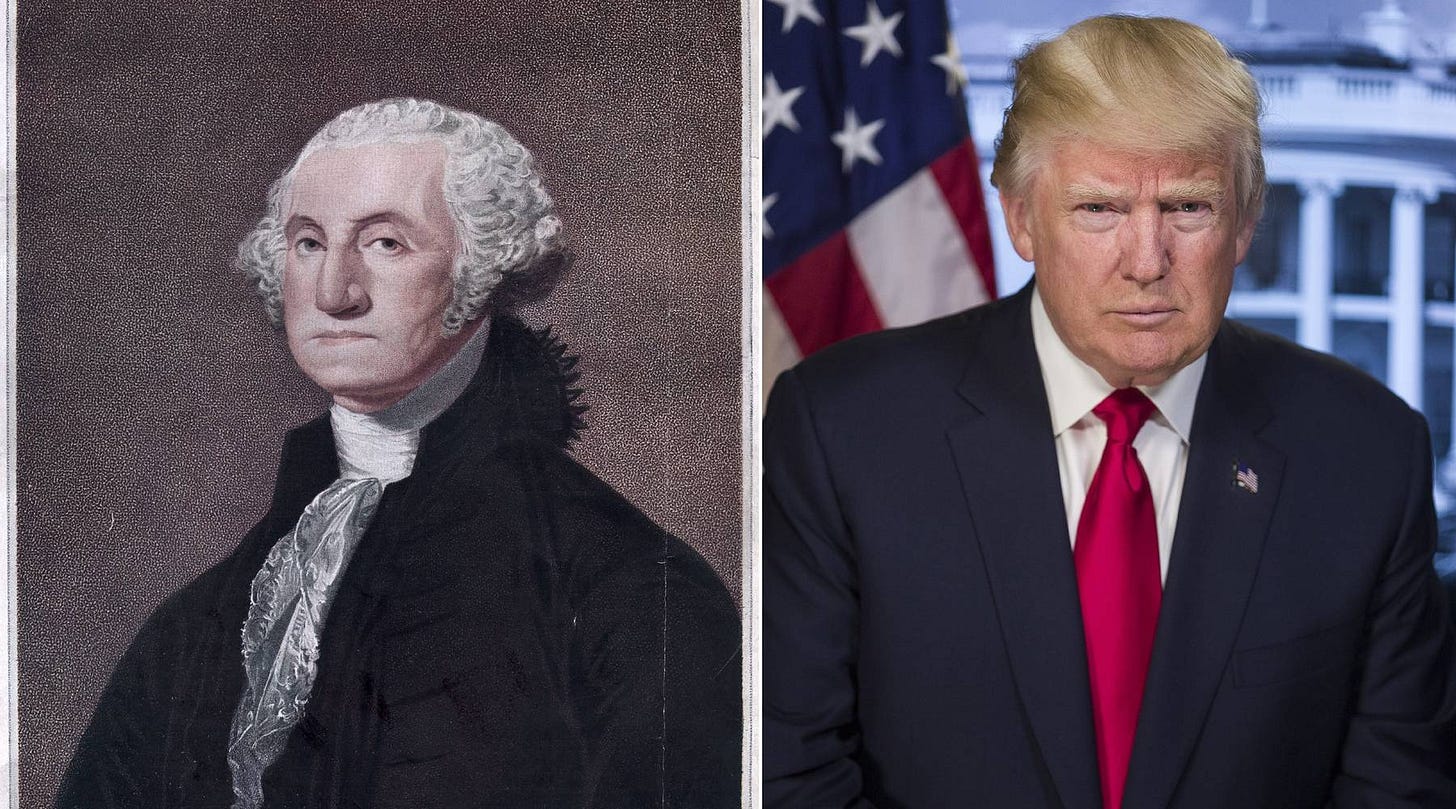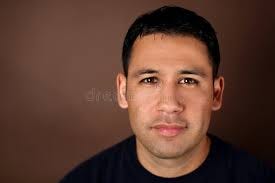Clients say, “Dr Hill…”:
I’m a mother of 4 kids; I have no meaning.
I’m rich by most people’s standards but unhappy.
I’m an ER physician who treats his patients; I have no meaning.
I’m meaningful to my spouse but have no purpose other than that.
I’m worthwhile, but I can’t keep a job.
At 93 years old, I’ve outlived most people. My friends, spouse, and sibs are gone; my children have died or moved away. I’m the oldest living person in my family. I have no reason to be alive.
I’m 45, divorced, have a good job. People count on me at work, but I have nothing at home.
I wonder about these statements.
They arise:
When one is depressed.
When one is 80+ years.
When one is in midlife.
When one feels disconnected.
When a loved one has died.
During a life transition.
In the presence of a chronic disease.
During a values conflict.
Are these reasons why a person loses meaning or purpose?
OR
Are these reasons only “background” factors?
People can also lose meaning and purpose for no apparent reason.
What do you think can be done?
I discuss “meaning " elsewhere.
In this entry, I focus on the distinction between meaning and purpose.
The two-by-two table below depicts this distinction.
Are “meaning and purpose” the same or different? … better or worse?
Some say the same.
Some say different.
What does it feel like:
To experience purpose (or not)?
To experience meaning (or not)?
To have purpose without meaning, or meaning without purpose?
As a consequence of joining the military, you are given a purpose. Are you also given MEANING?
What is the military purpose?
“The Mission over the Man.”
The above are “military” mission/values statements. These are “Purpose statements.”
“My purpose is THE MISSION.”
Is there also MILITARY MEANING?
I’ll let you PUZZLE this.
I’ve worked with clients who have left various religions and religious orders for one reason or another. This includes Catholicism, Mormonism, Jehovah’s Witnesses, Christian Fundamentalism, LDS Church of the Firstborn, and so on.
“Leavers” usually experience a transition in meaning and/or purpose. The same is true for the military.
In my view, it is harder to disengage from “military purpose” than to leave a religion.
Why? The social strength of the “Military Mission” and the meaning to the person of the Military Mission is more profound, for some reason, than religion.
In the military, it is assumed that you will give your life (or mortality) for the mission. The same is true for religion, but it is different (it’s between you and God, so to speak, versus you and the United States of America or the American people).
You are “born again” into a religion but “inducted” into the military. There is a different process involved, and this may have something to do with it.
“Once a Marine, always a Marine.” (meaning: A Marine is who I am.). Mission over the Man: A purpose statement: The mission for a Marine is a more critical purpose than your life.)
This is not always true in religion: Once a Born-Again Baptist, not necessarily always a Born-Again Baptist.
What impacts leavers the most?
Their purpose or their meaning.
Dr. Hill, since leaving the …Church, I’ve lost my sense of meaning.
Dr. Hill, since leaving the …Military, I’ve lost my sense of purpose.
You be the judge.
Is the distinction between “purpose” and “meaning” only a matter of semantics?
Who I am? Versus What I’m doing?
OR
Is there a tangible distinction between the two?
This question cannot be addressed without further defining terms.
Define Meaning: Merriam-Webster: 1a: …the thing one intends to convey especially by language (purport)… 2a: …something meant or intended (aim) 3a: …significant quality (especially: implication of a hidden or special significance)
Define Purpose: Merriam-Webster: (NOUN) 1a: …something set up as an object or end to be attained (intention)… 1b: …resolution (determination)
These words are different. They describe different “human” states of “being.” I define “being” elsewhere as an essential word for meaning.
Animals don’t have purpose or meaning; they have instincts. Why?
Do humans have instincts (intuition) as well as meaning and purpose?
Does meaning and purpose grow out of instinct, or are they separate?
We need to probe deeper into the intra-psychic implications of purpose and meaning:
THIS IS A COMPLEX ENTRY. If you want to stop, SKIP TO THE END AND REVIEW THE RECOMMENDATIONS.
The American Psychological Association defines meaning as n. the cognitive or emotional significance of a word or sequence of words or a concept, sign, or symbolic act. This may include a range of implied or associated ideas (connotative meaning) and literal significance (denotative meaning).
The study of meaning in language is “semantics.” Meaning in symbolic systems is “semiotics.”
Semantics = …the study of the relationships between words or phrases and the things or concepts they refer to.
Semiotics = …the study of verbal and nonverbal signs and how signs [and signifiers] communicate meaning within a sign system. [also known as a system of representation…]
Clarification: Semantics and Semiotics are distinct.
When we see something—a tree—it has a verbal definition or semantic meaning within our language (lexical meaning). When one considers the word “tree,” a symbolic structure is activated (connecting it to the image of a “tree” in our mind). This is Semiotics.
Nietzsche struggled with the potential for bias in our language, particularly semiotics. For example, when you think of the word tree, you generate an image (perhaps a pine tree, a deciduous tree, or a palm tree). The image of a tree is a “sign.”
The single-line image below is a tree.
A specific tree, a Christmas tree. The second image is intensely packed with information. These images are called “SIGNS.” Signs signify something. The second sign signifies NOT Tree, but “Christmas.” And so the theory of semiotics goes.
Due to this mental framework restriction, our thoughts are limited by our language. We have one word for snow. (the Intuit language, or Inuykitut, has approximately 50 singular words for snow. An Intuit mind doesn’t necessarily image a snowflake. It depends on the sign/word.
We wouldn’t say that the tree signs above represent cars because the sign has locked and restricted our thoughts to the image of a tree.
Nietzsche asserts that we invented all words, including “good,” “evil,” “guilty,” and “innocent.” We also invented the words "God” and “Jesus.” We decide who (or what) is “good” or “evil” and why. We determine who God is (was), who Jesus is (was), and whether they are alive today or non-existent. It is “us” who decide that (not some extraterrestrial being or entity).
Note: Signs can change their conceptual meaning depending on social trends. For example, the word “honesty” today differs from “honesty” in 1789.
Way back in the day (according to Nietzsche), the masters (not the slaves) invented words; the slaves lived under the Masters’ words; slaves were slaves to “The Word.”
“The Word” was made flesh and dwelt among us.
Nietzsche asserts that True Believers are slaves to Christian ideology. Religious leaders are slaves, too, managing slaves of the underlying slaves. The Masters don’t need or even care about God, Jesus, the Holy Ghost, or religion. This is simply a system they created to enslave the slaves.
Nietzsche was a radical philosopher. But (in your POV), is he right or wrong? Remember that we also invented “right” and “wrong.”
MOVING TO PURPOSE
The American Psychological Association defines purpose as 1. the reason for which something is done or for which something exists. 2. a mental goal or aim that directs a person’s actions... 3. persistence or resolution in pursuing such a goal.
“Purpose” is unidimensional. It is "what" you are trying to achieve.
This is contrasted to “meaning,” which is "why" it matters...
Is this all one needs to know about
Purpose and Meaning?
Perhaps…
UNLESS you attach the phrase “…in life…” to each word, which pushes for a deeper understanding of what these words stand for.
Attaching the phrase “…in life…” further distinguishes the words in love, work, and fulfillment regardless of one’s race, religion, language, culture, sex, education, and age.
“…in life…” has implications for psychotherapy; if a person says, "Dr. Hill, I have no meaning in life," this indicates a different psychotherapy journey than if one says, "Dr. Hill, I have no purpose in life."
Most people treat “purpose” and “meaning” as distinct. I demonstrate below:
Sally, an 8 y/o child, says to her mother, “I am sad.” The mother asks (“why?”). Sally doesn’t respond. The mother thinks Sally must be bored. So, Mom says to Sally, “Would you like to play your favorite video game?” Sally does not comment. Mother says, “C’mon Sally, I will play it with you.” Sally acquiesces to Mom’s idea. Mom concludes: I knew Sally was bored.
When Sally says, “I’m sad.” Is Sally lacking purpose or meaning?
If Mom had pursued “Why,” Sally might have said, “I’m bored,” This could mean Sally lacked purpose.
OR
If Sally said, “I read a story about death, and I’m sad because you, Mom, might die, and I will never see you again.” This is meaning!
The first issue is about “purpose.”
The second is about “meaning.”
We live in a purpose-driven world.
It is easier for people to identify purpose than to spend time sorting out meaning. This is true for children and adults.
“I am a child of God, and He has sent me here…” Lines to a Mormon primary hymn I won’t belabor.
Is this a hymn about meaning or purpose?
How many times have you tried to solve your problems of meaning within a purpose paradigm?
A 45-year-old client came to me with a strong sense of uncertainty. While taking a clinical history, the client revealed a pivotal event.
When he was 7 years old, he read a children’s book. It contained some sentences about someone dying. The text was ambiguous, but it was clearly about death and dying. The client (as a child) read it. A week before he read the book, the client’s father’s brother had died. The client knew his uncle well. The uncle died of a heart attack while at work. At 7 years old, the client attended his uncle’s funeral with his parents.
It was a perfunctory experience, and the client didn’t think much of it (as a child) until walking up to the casket; he was curious, and he touched the face of his deceased uncle, who was lying in the open coffin. It felt waxy and cold. He was immediately scolded and slapped on the hand by his Mother. This was for touching the uncle’s face. She said, “Son, never touch the dead!” What did she “mean” by this? What was this warning all about? It meant to the client at that time that the uncle was once alive but is now dead, and the dead are off-limits to everyone.
The client thought, “I might die next!” The client recalled feeling his heart pounding, a bad omen because his uncle died of a heart attack. The client also felt a tremendous fear that he did not understand. Asking his Mom about death, Mom responded, “…this isn’t an issue for you to worry your head about; it’s an adult thing.”
Shortly after the funeral, Mom removed the book from the client’s shelf—another “sign” of danger.
It was from this point onward that the client felt this deep and persistent dread that it was only a matter of time before the client would confront death. As he got older, he realized this was, indeed, true. He was sure it would be a heart attack, just like his uncle. Would it hurt? What happens afterward? If you are dead, you would certainly be entirely alone and afraid. There would be no one to help you or love you? You would be ostracized from all humanity.
As Mom taught, death should be avoided, and from this point on, the idea of dying kept creeping back into the client’s life and creating deep-seated anxieties that would extend into dark depressive states. This client felt trapped in life by Death.
This story is central to a person’s sense of meaning. As best I can tell, it is not a purpose-driven issue; it is almost exclusively one of meaning and the absence of meaning via death.
Most real psychotherapy has to do with meaning issues.
Purpose is the fluff of living; Meaning is the heart of living. Unfortunately, meaning is more complicated to grasp, connect with, articulate, and deal with. This is why “Effective” psychotherapy is as much an art form than a science.
A recommendation to explore your sense of purpose and meaning:
What are your sources of purpose? Make a list.
What are your sources of meaning? Make a list.
Ask yourself, Are these the same, or are they different?
What were your sources of purpose when you were 15 years old? Make a list.
What were your sources of meaning when you were 15 years old? Make a list.
Have my purpose and meaning changed from 15 years old to the current day?
I am scratching the surface of this topic. These two words—purpose and meaning—could fill a library of self-help books. It boils down to a few simple questions.
Am I free or constrained in how I think and feel today?
If I feel “constrained,” What is at the root of this constraint?
How can I free myself to think and feel as I want to?
If I become free to think and feel as I want, would this be a source of fulfillment for me?
Would it harm me or others?
If your answer is #4 is yes, and #5 is no, then pursuing this source of personal freedom will enhance your meaning and purpose.






